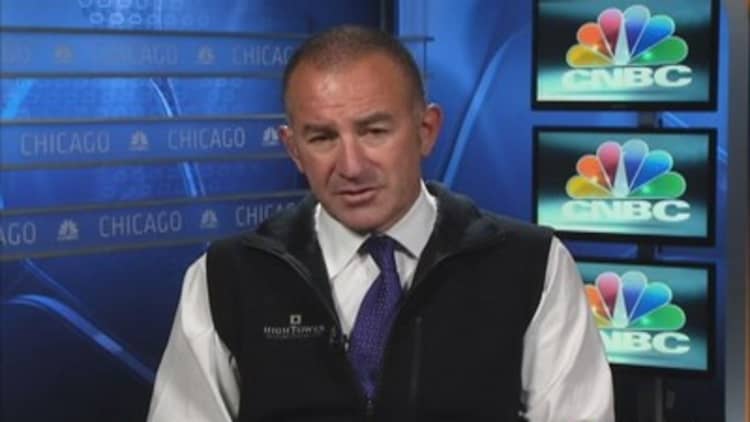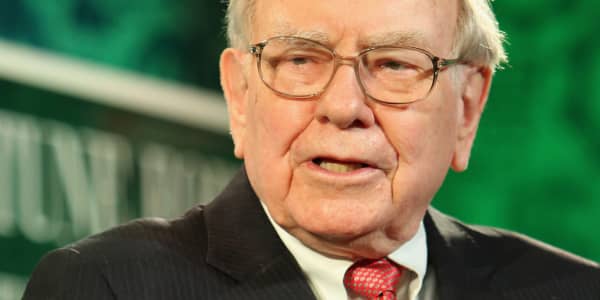The estimated 1,600 Twitter employees who hit it big in the social networking giant's IPO join a small but growing subset of tech sector elite investors. Many of the "rank-and-file" employees from Generation X and Y who are on the receiving end of Silicon Valley IPO sudden wealth face the enviable task of deciding how best to invest for long-term success.
Adam Nash, chief operating officer for Palo Alto, Calif.-based online financial advisory firm Wealthfront, said that in some respects, concerns are typical. "Most of our clients are under 40 so their questions center on what this windfall means for starting a family or buying a house," he said.
But the Gen X and Gen Y millionaires depart from previous generations in important ways: They often wonder whether IPO riches mean they can afford to take a year off to start their own company. "That's a very popular theme in Silicon Valley, and it reflects the needs of the next generation," Nash said.
The Wealthfront executive is in a good position to know the Twitter employee-investor mindset. Wealthfront is a venture-backed company run by a founder of Silicon Valley venture capital firm Benchmark Capital—Andy Rachleff. And many of Wealthfront's early clients have been Facebook employees. Nash also recently gave a presentation called "'Personal Finance for Engineers" to Twitter employees ahead of its IPO.
The so-called Start-up Generation is often described as fearless, educated and independent, which is as true in seeing an idea through capital formation as it is in their personal financial decision-making.
Don't expect them to play it safe with mutual funds, though many of these investors do use low-cost index funds for diversification.
(Read more: The entrepreneur's biggest risk may be retirement)
Coming of age during the financial crisis of 2008, a lackluster job market and an era of corporate scandals has made high-net-worth millennials gravitate to nontraditional assets to an unusual degree. They also show a deep-seated desire to funnel financial windfalls back into start-ups.
Not many young people today believe in anything traditional anymore. Generation Y entrepreneurs who have made it would rather invest in a person than an intangible asset.Scott GerberFounder of the Young Entrepreneur Council
A 2013 "Millionaire Outlook" study by Fidelity Investments found Gen X and Y millionaires consider themselves to be sophisticated investors, with 77 percent likely to invest some of their own money independently versus 41 percent of baby boomers. They also personally execute an average 30 trades per month.
Other studies, including one this year by New York-based private bank U.S. Trust, found that nearly two-thirds (64 percent) of high-net-worth Gen Y investors are more comfortable buying physical assets, like businesses and real estate, than stocks.
Out with the old
"Not many young people today believe in anything traditional anymore," said Scott Gerber, founder of the Young Entrepreneur Council in New York, a membership group composed of successful entrepreneurs. "Generation Y entrepreneurs who have made it would rather invest in a person than an intangible asset. They use the social capital of their network to give someone else a chance in the same way an investor gave them that chance."
The Fidelity study found that 73 percent of Gen X and Y millionaires are willing to put money into aggressive strategies.
(Read more: You are your 401(k)'s worst enemy)
Newly minted millionaires must still adhere to the basic tenets of portfolio planning if they hope to preserve and protect their wealth, said Susan Bradley, a certified financial advisor and founder of the Sudden Money Institute who helped several clients managed their millions after the Facebook IPO in 2012. As with all long-term investment strategies, diversification is essential.
"The biggest mistake overnight millionaires make is to put all their eggs in one basket," Bradley said. Prudent investors divvy up their windfall into three distinct buckets—current spending and investing, a secure retirement and philanthropy. (The Fidelity study suggested philanthropy is more important to Gen X and Gen Y millionaires than it was for their parents, with Gen X and Y millionaires averaging $54,000 in charitable donations per year.)
"That's how great wealth is made. You need to break it into purpose silos so if you speculate with your money you've only lost 50 percent of it, not 100 percent," she said.

Christine Benz, director of personal finance for Morningstar, said Silicon Valley employees who attain wealth via company stock options should diversify into other asset classes as soon as their lockup period expires. A concentrated position in company stock leaves investors too vulnerable to the fortunes of their employer and the sector that sustains their livelihood.
Most financial planners recommend an aggressive portfolio allocation of roughly 80 percent equities, 10 percent alternatives, and the rest divided equally into fixed-income and cash equivalents.
(Read more: The most widely held stock in 401(k) plans is ...)
Eric Thurber, founder and managing director of Three Bridge Wealth Management in Silicon Valley, which works exclusively with young entrepreneurs and venture capitalists, said those with significant wealth can afford to increase their risk exposure with a larger allocation to hedge funds, foreign currency, liquid alternatives—hedge fund and private equity strategies packaged in "liquid" mutual fund structures, real estate, master limited partnerships and venture capital.
Thurber recommends clients with assets greater than $10 million allocate anywhere from 30 percent to 40 percent into alternative funds, while those worth less maintain a more traditionally diversified portfolio of stocks, bonds and cash.
Avoiding the Twitter tax man
Tax management is another key consideration for Silicon Valley entrepreneurs who are thrust into higher tax brackets—especially those who are compensated largely through stock options, which are taxed as a capital gain.
Nonqualified stock options are taxable upon exercise, so the benefit of holding them for a year to avoid paying the higher short term capital gains rate on the gain is largely lost, Thurber said. (Short term capital gains on securities held for less than one year are taxed at the ordinary income tax rate, which is 43.4 percent for the wealthiest taxpayers. Long-term capital gains on securities owned for more than a year are taxed at 20 percent for high income earners.)
To have that kind of money at a young age creates all kinds of great possibilities, but they have to get smart with investing if they want to have lifelong security.Susan BradleyCertified financial advisor and founder of the Sudden Money Institute
Company stock option owners should also consider donating appreciated stocks or property to charity, Bradley said, because it can create a dual, positive tax impact—the donor gets to deduct the property's fair market value on the date they gift and avoid paying capital gains tax on the appreciation.
"To have that kind of money at a young age creates all kinds of great possibilities, but they have to get smart with investing if they want to have lifelong security," Bradley said, both for the long-term investment security and short-term opportunities their wealth provides.
While average investors might need three to six months' worth of living expenses in an interest bearing account, Silicon Valley elite may need far more.
"They often want to take a year off for sabbatical, or take a chance working for a start-up firm that can't pay them as well," Bradley said. Some of her youngest clients also join volunteer organizations like the Peace Corps. "They absolutely need a back-up fund to grant them that flexibility."
—By Shelly K. Schwartz, Special to CNBC.com




